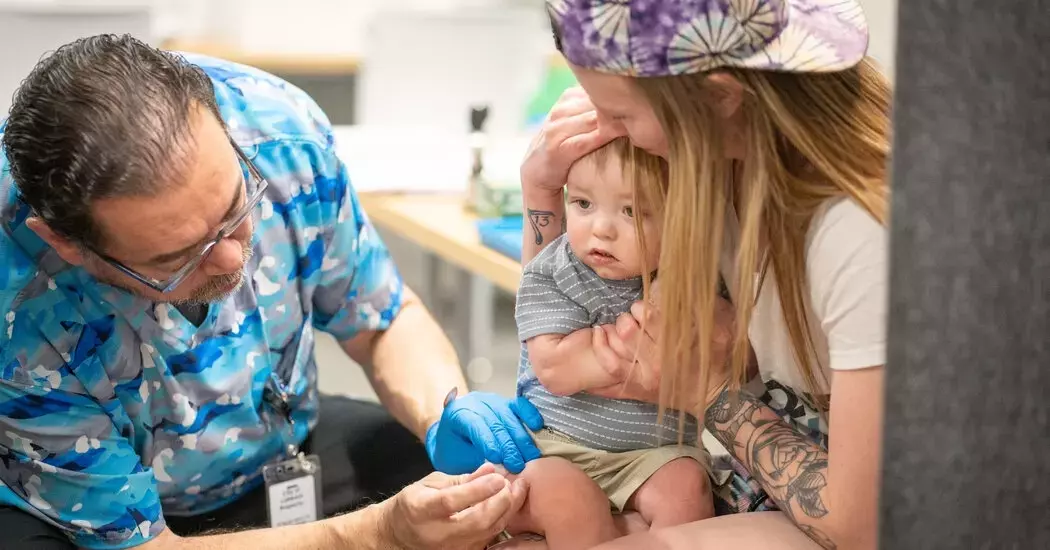
In the wake of the measles outbreak in West Texas, pediatricians like Dr. Ana Montanez are confronting complex situations involving infants and unvaccinated toddlers. The most pressing concern is the vulnerability of babies under six months old who cannot yet receive vaccinations. Meanwhile, parents are exploring alternative remedies, adding to the complexity of medical advice.
Dr. Montanez has been actively advising families about safeguarding their children through vaccination and addressing misinformation surrounding treatments. Despite these efforts, challenges persist for families dealing with daycare needs and limited health options.
Protecting the Most Vulnerable: Infants Below Six Months
Among the most challenging aspects of the current measles situation is the protection of infants below six months old. These young ones are at heightened risk due to their undeveloped immune systems and inability to be vaccinated. Dr. Montanez emphasizes that ensuring all caregivers around these babies are vaccinated offers some level of indirect protection. However, she acknowledges the practical difficulties faced by working parents needing childcare.
Babies under six months remain a focal point in this crisis as they represent one of the most defenseless groups against the highly infectious disease. Parents often find themselves in a dilemma when deciding whether to send their infants to daycare facilities. While vaccinations for older children and adults can mitigate risks, there is little recourse for infants too young to benefit from immunization. Dr. Montanez recommends limiting exposure wherever possible but understands the economic necessity driving many parents' decisions. This delicate balance underscores the urgency for broader community immunity and support systems for families.
Misinformation and Its Impact on Treatment Choices
A significant hurdle in managing the outbreak involves combating misinformation regarding treatment options. Families are increasingly turning to unverified remedies such as cod liver oil and vitamin A, influenced by public figures advocating for these alternatives. Such misinformation complicates the task of healthcare providers aiming to offer evidence-based care. Dr. Montanez navigates these discussions carefully, balancing education with empathy towards concerned parents.
The spread of misleading information poses a serious challenge in effective disease management. Prominent voices promoting non-scientific solutions further confuse already anxious parents seeking ways to protect their children. In response, Dr. Montanez dedicates time to explaining why conventional vaccines remain the best defense against measles. She highlights the importance of reliable sources of medical advice and encourages open communication between families and healthcare professionals. By fostering trust and understanding, she hopes to steer families away from potentially harmful practices toward safer, more effective preventive measures. This educational approach not only addresses immediate concerns but also aims to build long-term resilience within communities affected by the outbreak.
